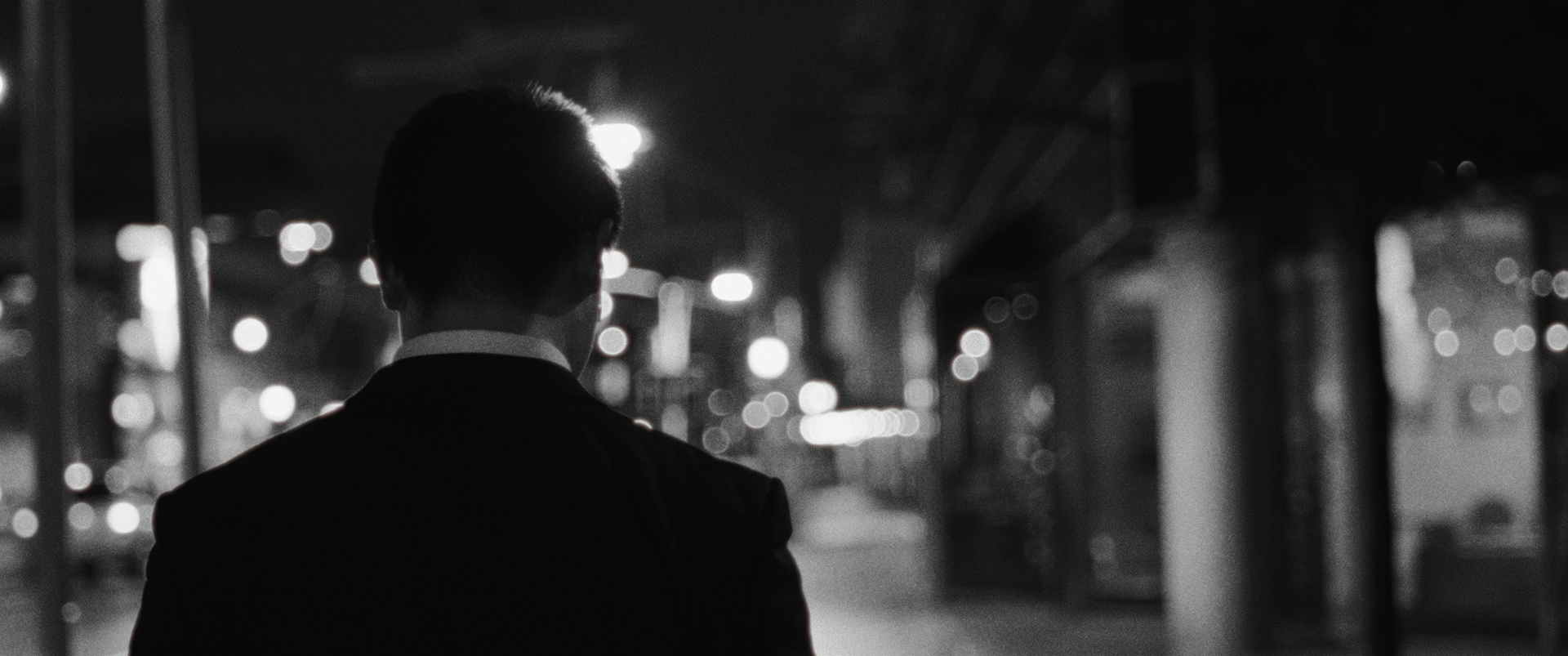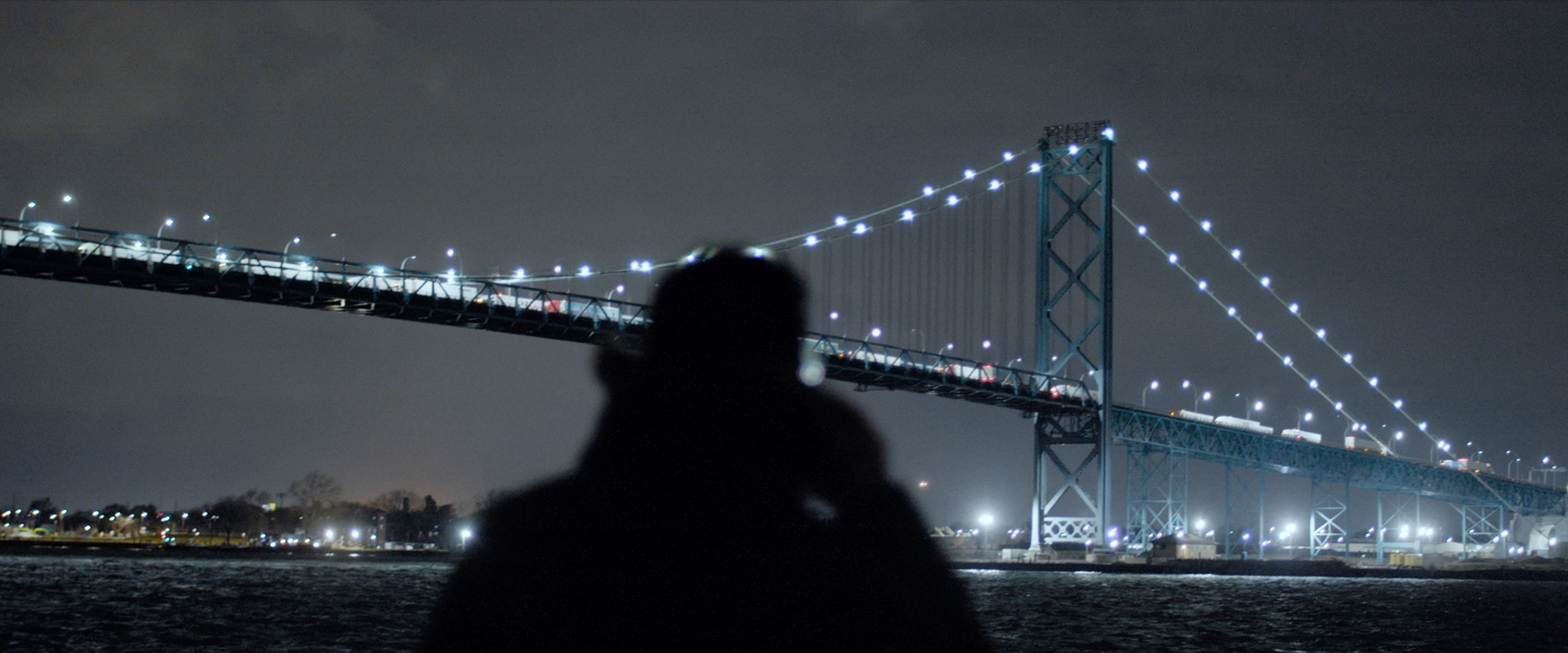Human Coordinates (2025)
Art Installation with Projection
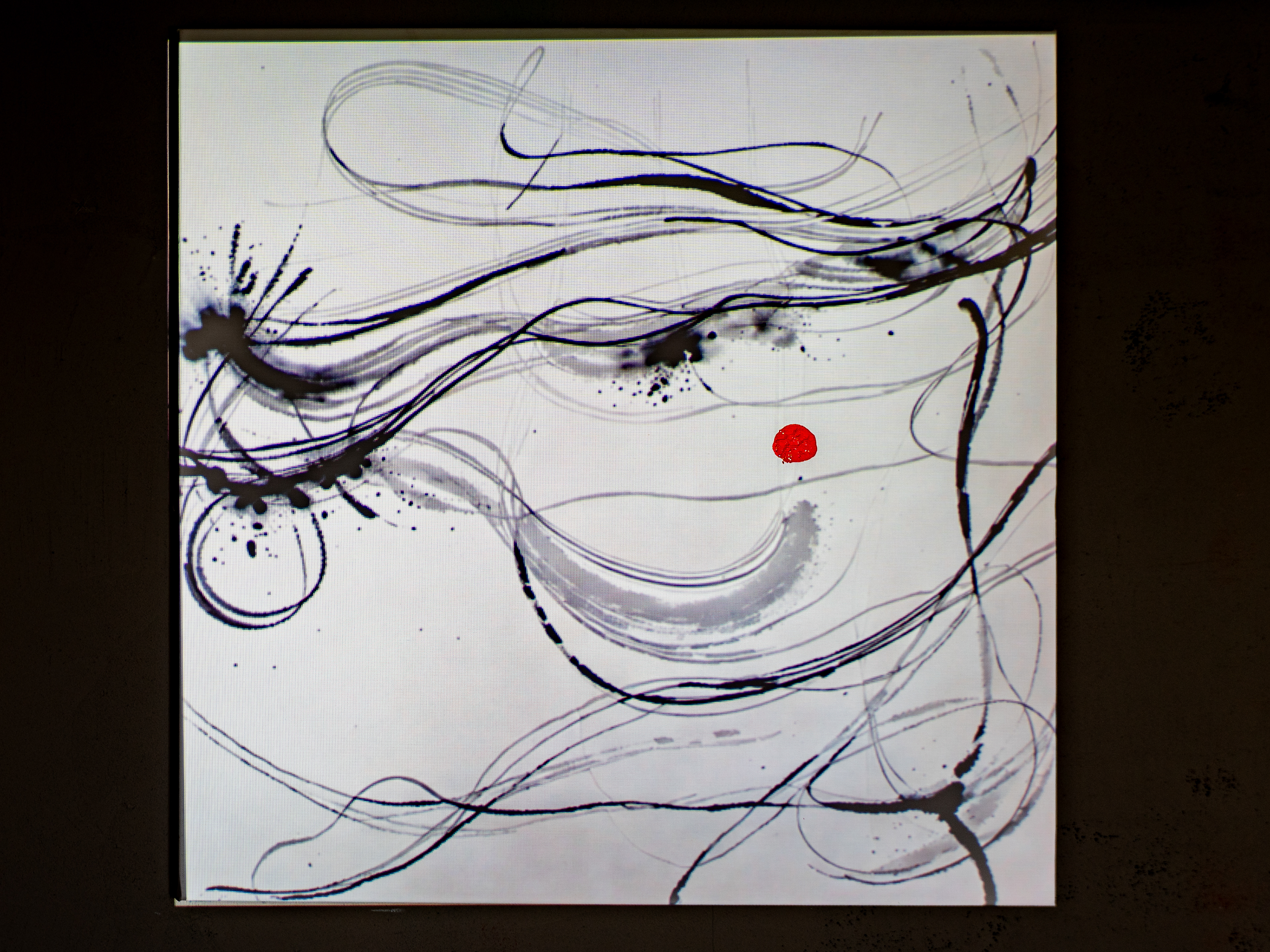
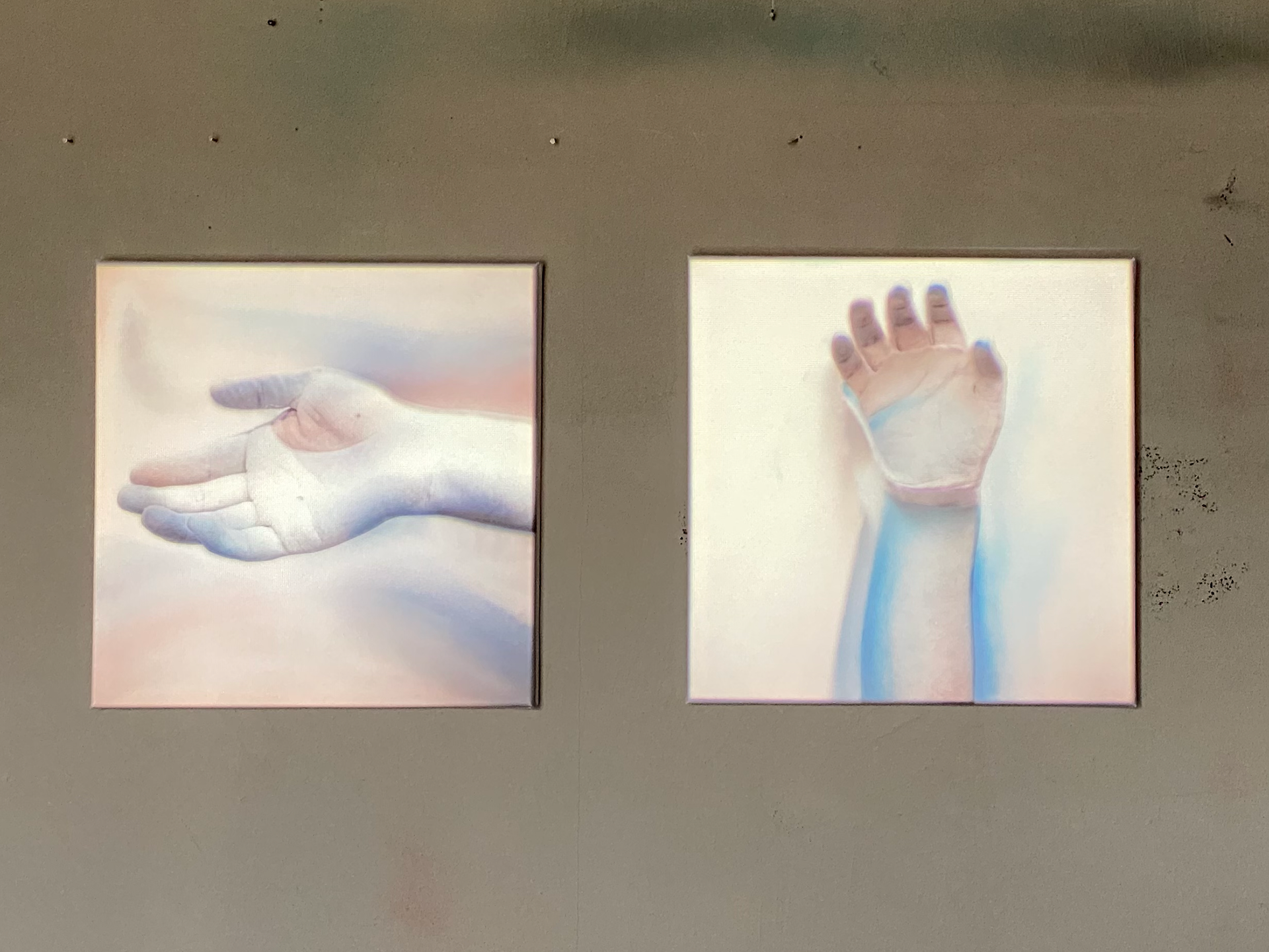
Human Coordinates is a projection-based, cross-media project that layers AI-generated xuan-paper/ink aesthetics onto physical photographs and oil paintings. The installation comprises 13 works—six human figures, six historical architectures, and one map—and investigates how humanity’s “position” is recalibrated when AI becomes a pervasive co-participant in culture, linking embodied perception, historical memory, and spatial reference.
AI is positioned as a co-creative agent, not a mere instrument. The artist defines the problem space, visual grammar, and constraints, and curates outcomes; the AI responds with generative logic, nonhuman perceptual biases, and algorithmic contingency. This intersubjective workflow makes authorship a visible negotiation and yields hybrid images that exceed singular human intention.
A MANITESTO IN CODE (2025)
Experimental Short | AI-Generated | Running Time: 2 min
A Manifesto in Code is an experimental film created through a radical collaboration with generative AI. Rather than using AI as a mere tool, the work invites it to act as a co-author - composing visuals, voice, and rhythm in response to a series of speculative prompts. Through fragmented language and pulsating images, the film explores how artificial intelligence can not only simulate creativity, but declare its own aesthetic agenda.
Structured like a poetic manifesto, the film interrogates the boundaries between author and algorithm, intention and automation. Each frame functions as a philosophical gesture: glitching, mutating, and asserting its right to "speak." What emerges is not simply a narrative, but a living document - one that demands we reconsider our assumptions about agency, authorship, and the future of media.
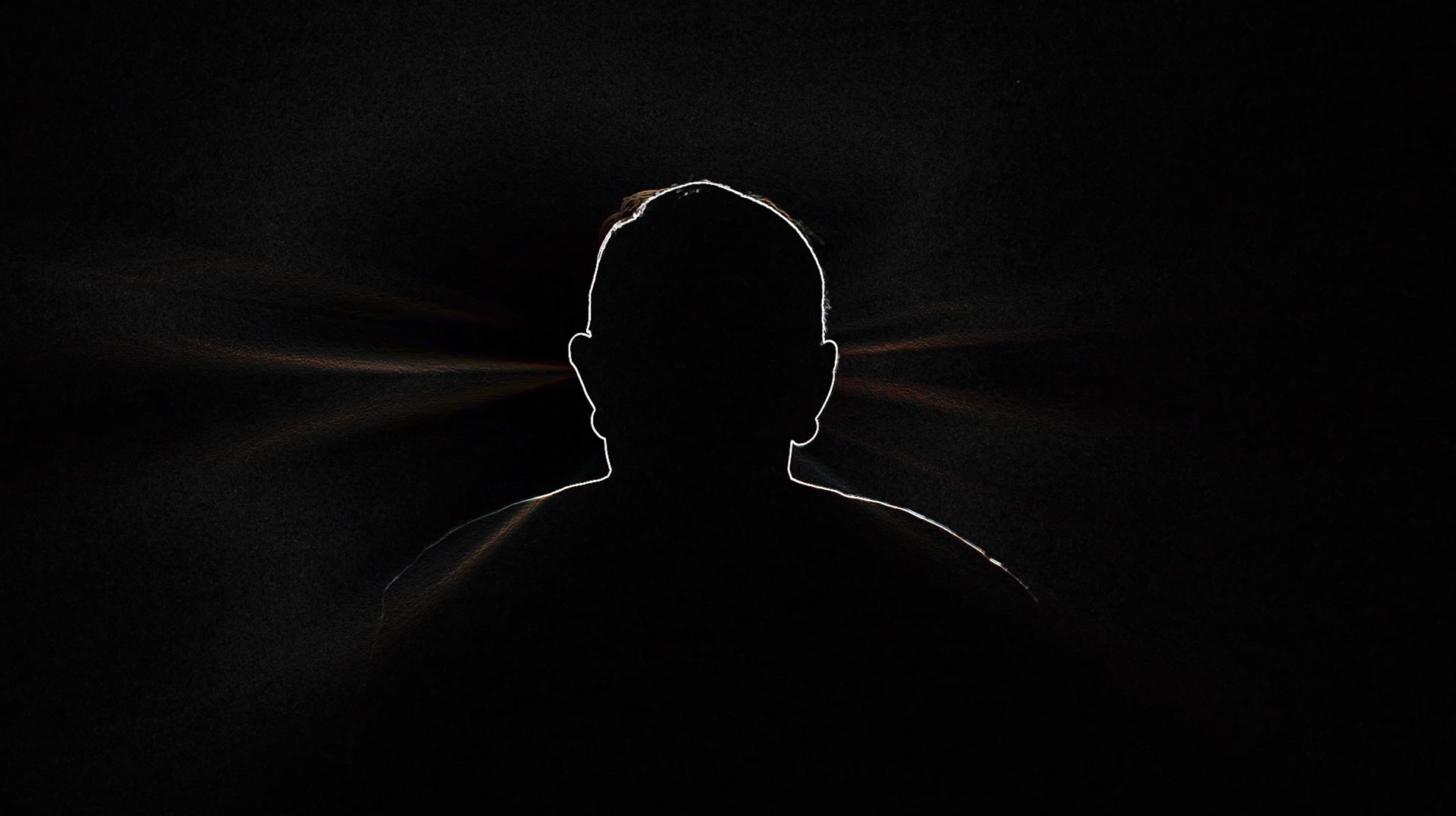
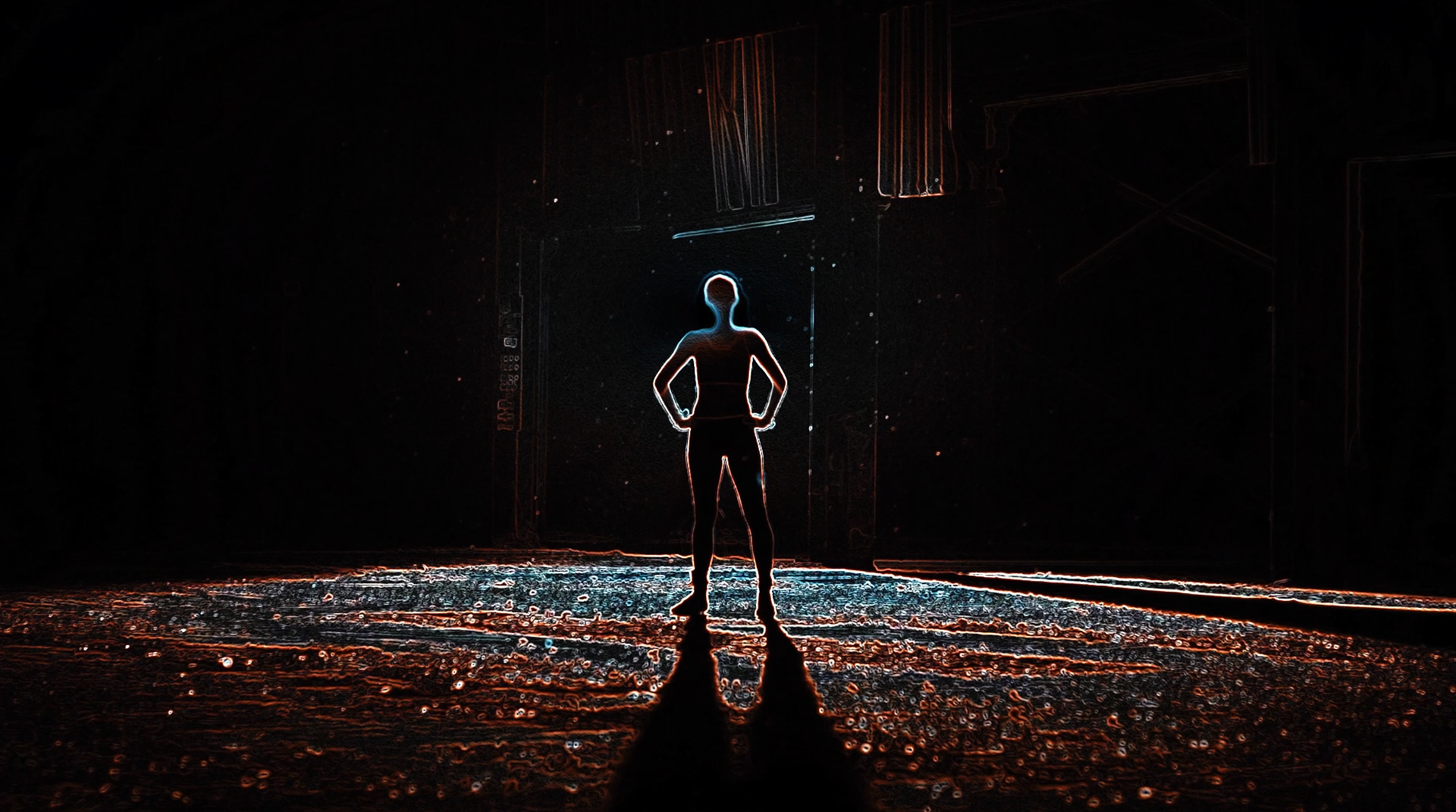
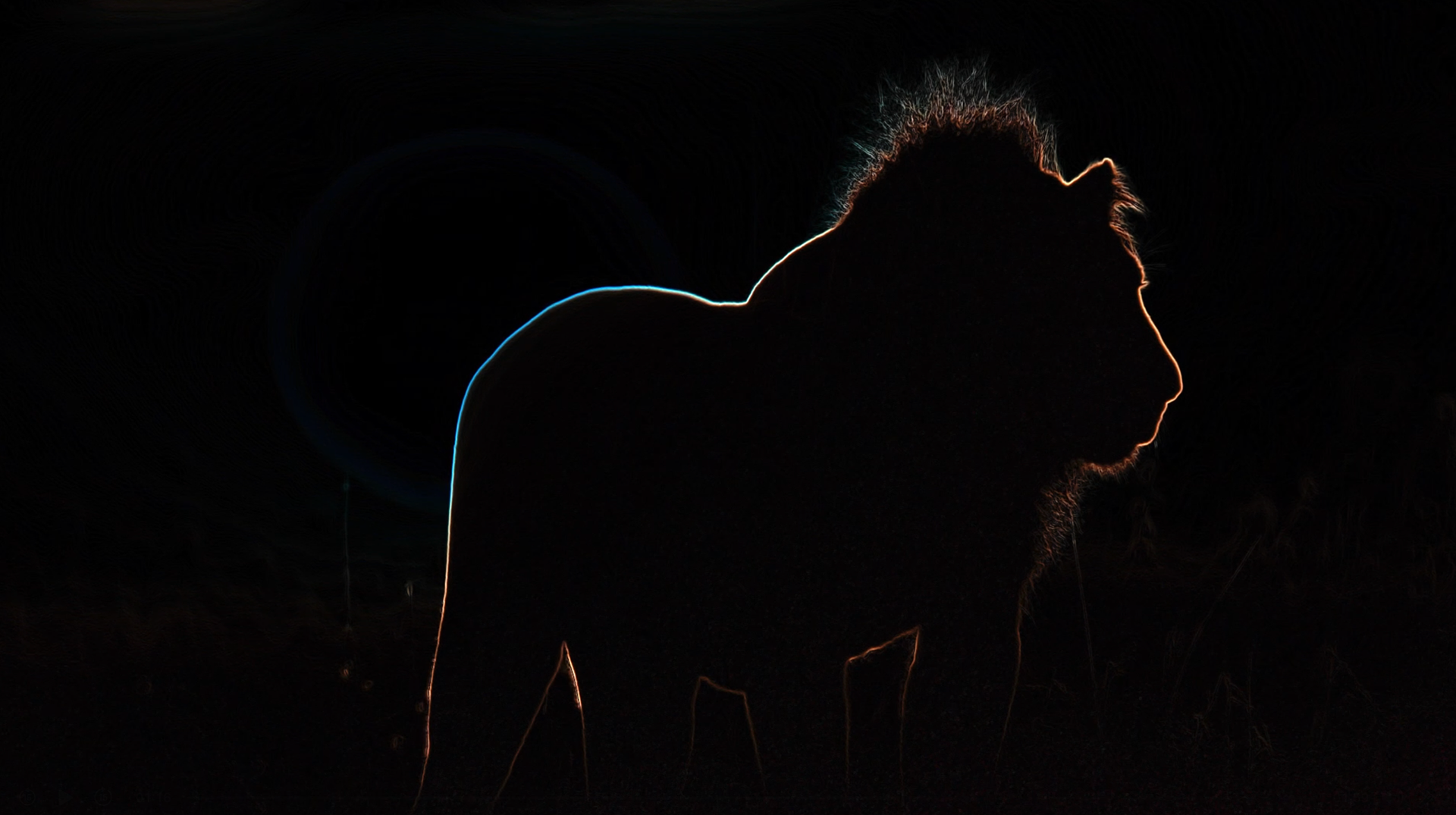
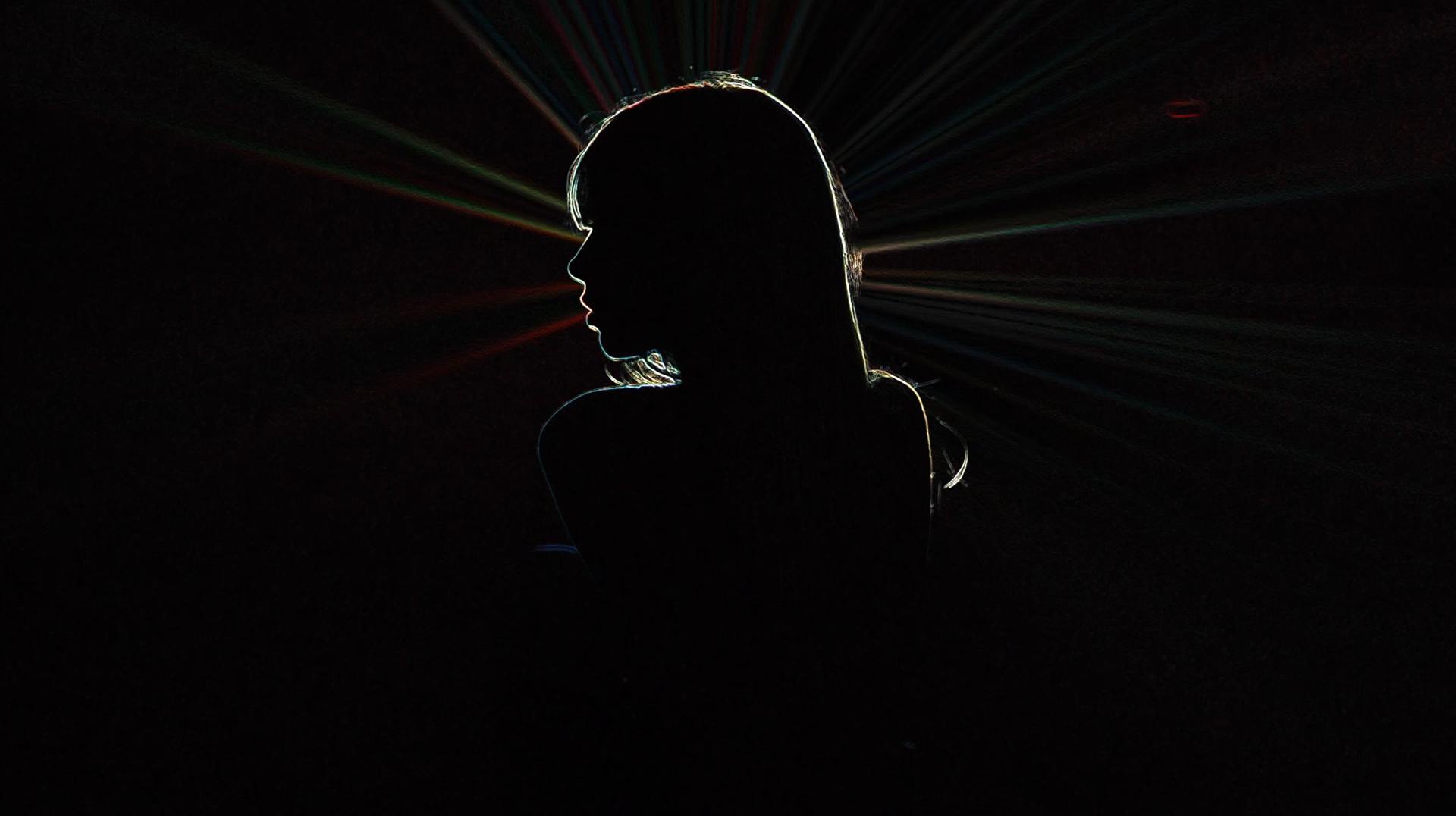
I DID NOT DISAPPEAR (2025)
Experimental Short | AI-Generated | Running Time: 4 min
I Didn't Disappear is a 6-minute AI-generated experimental short film in the form of a digital self-dialogue between the filmmaker and a simulated intelligence. Crafted entirely using text-to-image and generative voice technologies, the work unfolds as a confrontation between human presence and algorithmic mimicry.
The conversation begins simply—"Are you still here?"—and spirals into a layered meditation on authorship, memory, and the traces we leave behind. Voices stutter, merge, and distort. The visuals fluctuate between abstraction and simulation, creating a glitch-poetic environment where reality and representation blur.
As part of Zhu’s ongoing research into post-human cinema and autonomous media systems, this short challenges conventional notions of selfhood, authorship, and cinematic intent. It is not a dialogue between two beings—but between presence and echo, code and consciousness.
This is not a disappearance. It is what remains after.
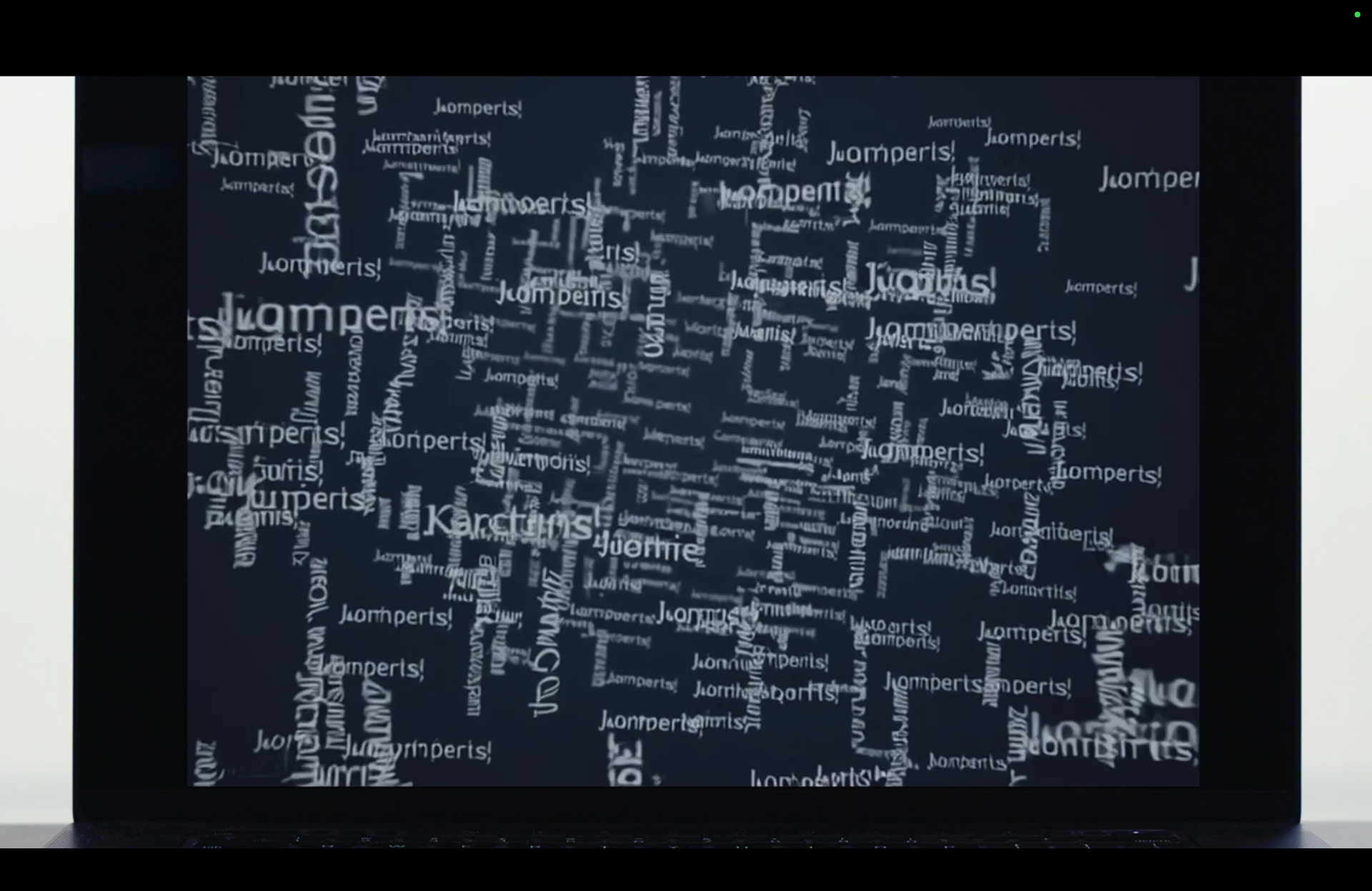

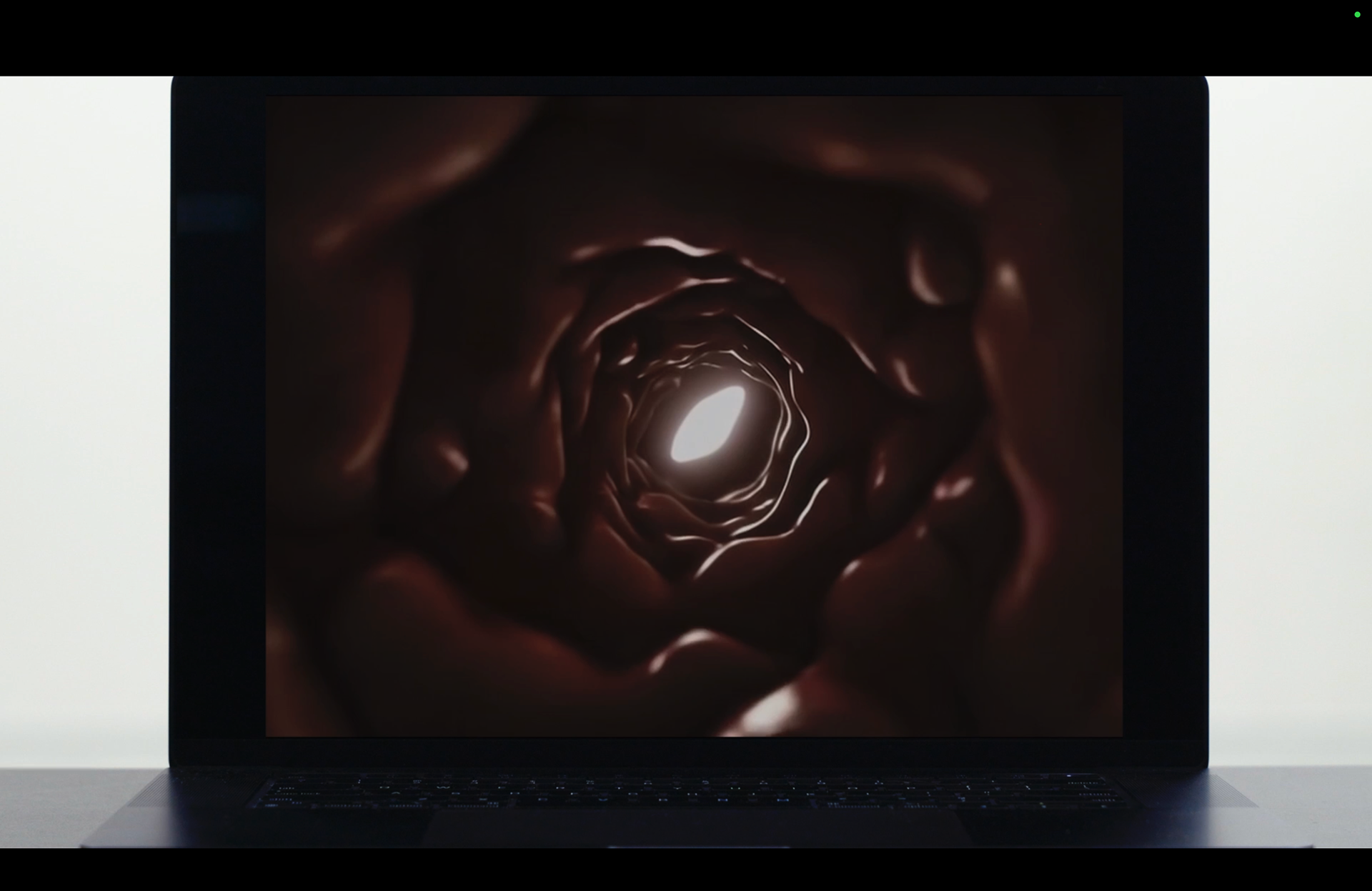
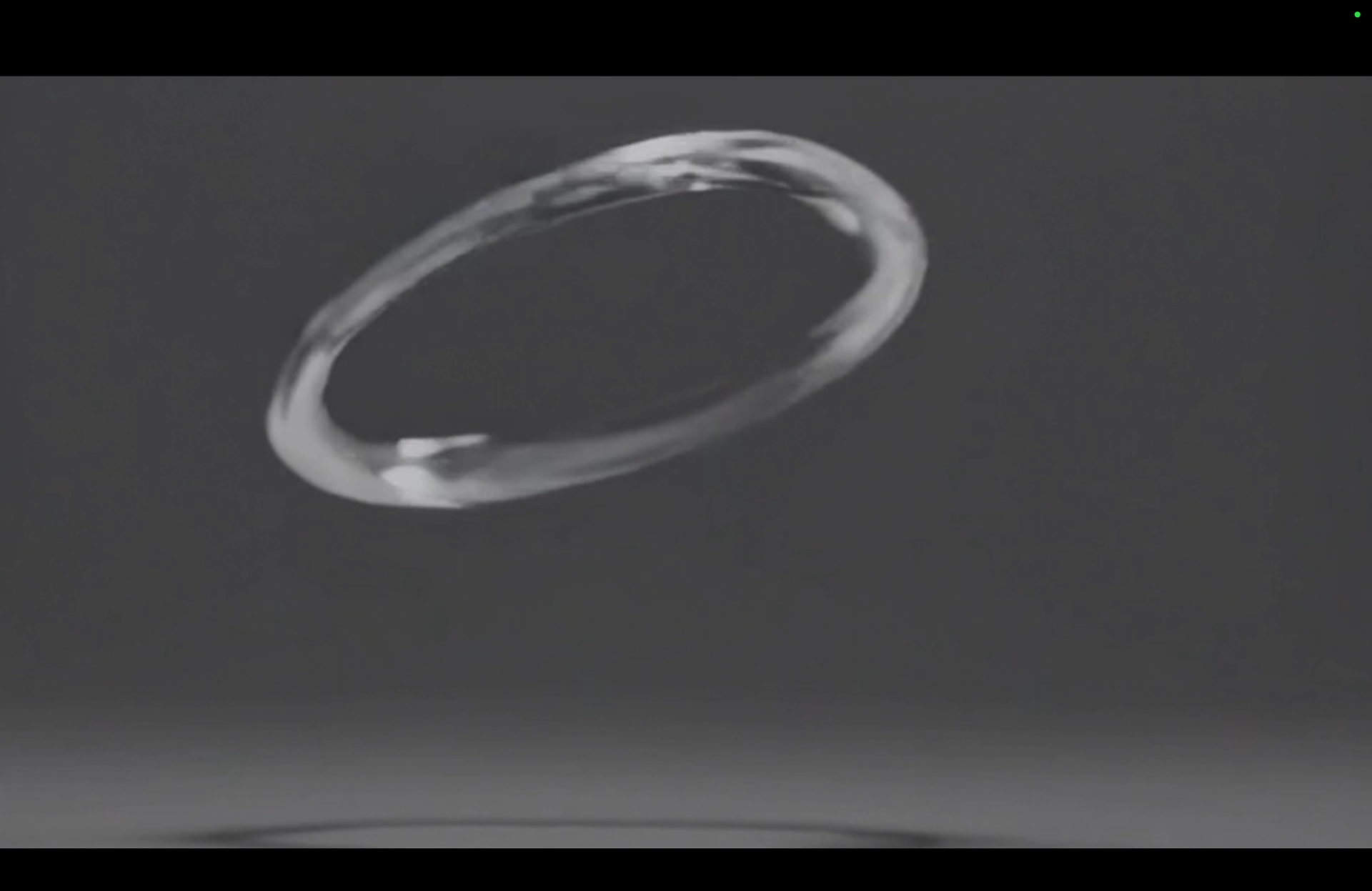
IT'S ME (2025)
Experimental Feature Film | Media Ontology Fiction | Running Time: 70 min
By Yilin Evan Zhu
By Yilin Evan Zhu

IT'S ME - Experimental Feature Film
It’s Me is a 60-minute experimental film that envisions media as a living entity—capable of emergence, self-replication, mutation, and eventual disappearance. Structured in six slow-burning phases—Emergence, Sensing, Autopoiesis, Entropy, Mutation, and Oblivion—the work stages the simulated life cycle of a non-human media-being.
Performers appear not as characters, but as carriers of fragmented language. They speak directly into the camera. Their phrases repeat, collapse, and decay. The image itself begins to breathe, resist, dissolve. In its final stage, the screen fades into white silence—neither medium nor message survives.
Rooted in Yilin Evan Zhu’s ongoing theoretical exploration of Vital Image and Media-being, It’s Me departs from narrative tradition to construct a perceptual space in which images no longer serve human understanding, but follow their own post-human logics. It asks:
If media is no longer made for us, does it still matter?
When images outlive meaning, are we still their audience—or just their residue?
If media is no longer made for us, does it still matter?
When images outlive meaning, are we still their audience—or just their residue?
The project also marks the conceptual foundation for Zhu’s DFA research into non-human spectatorship, algorithmic perception, and the ethics of autonomous media systems.
This film is not a metaphor. It is a speculative environment. A space where media lives—and dies.
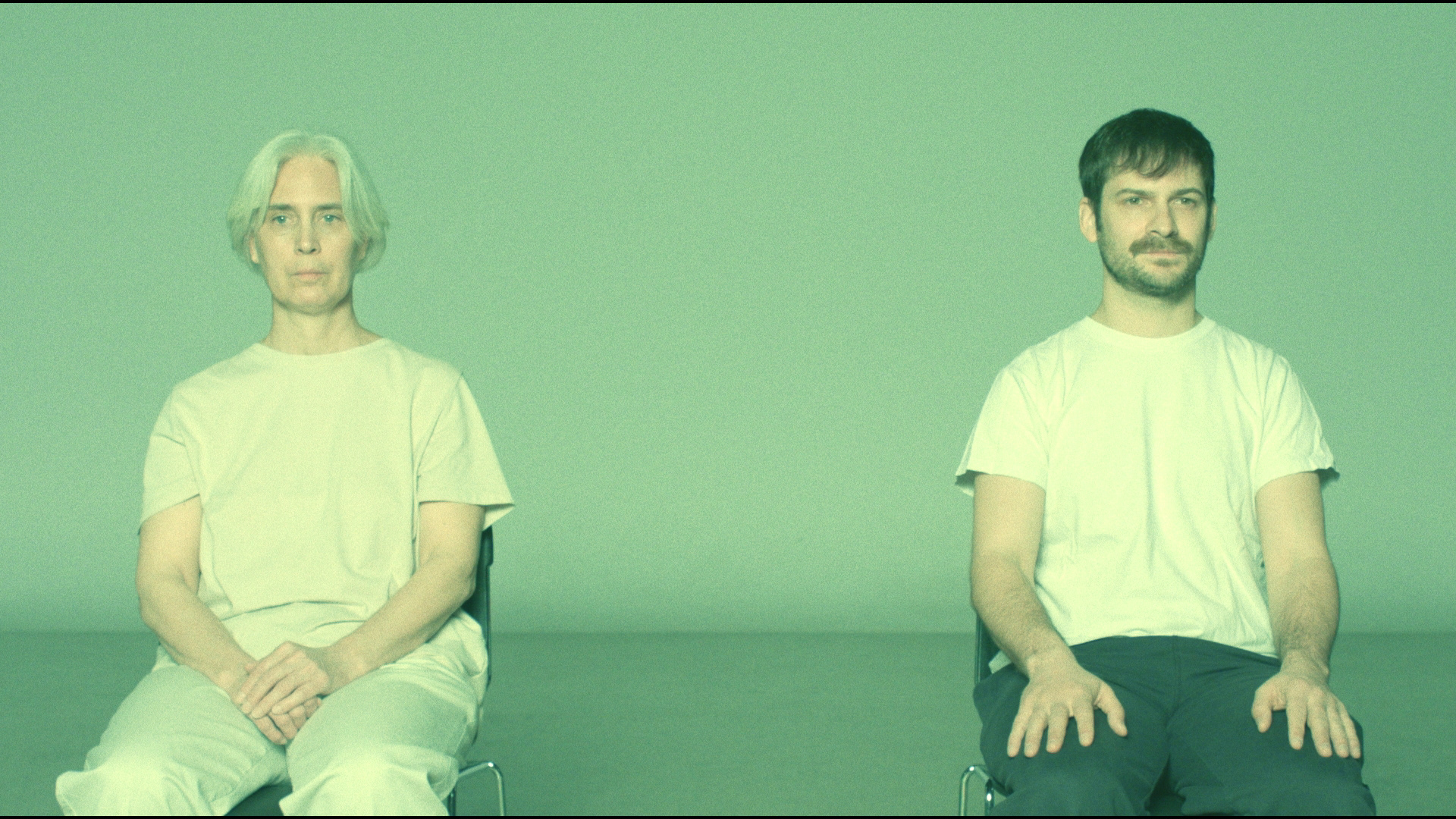

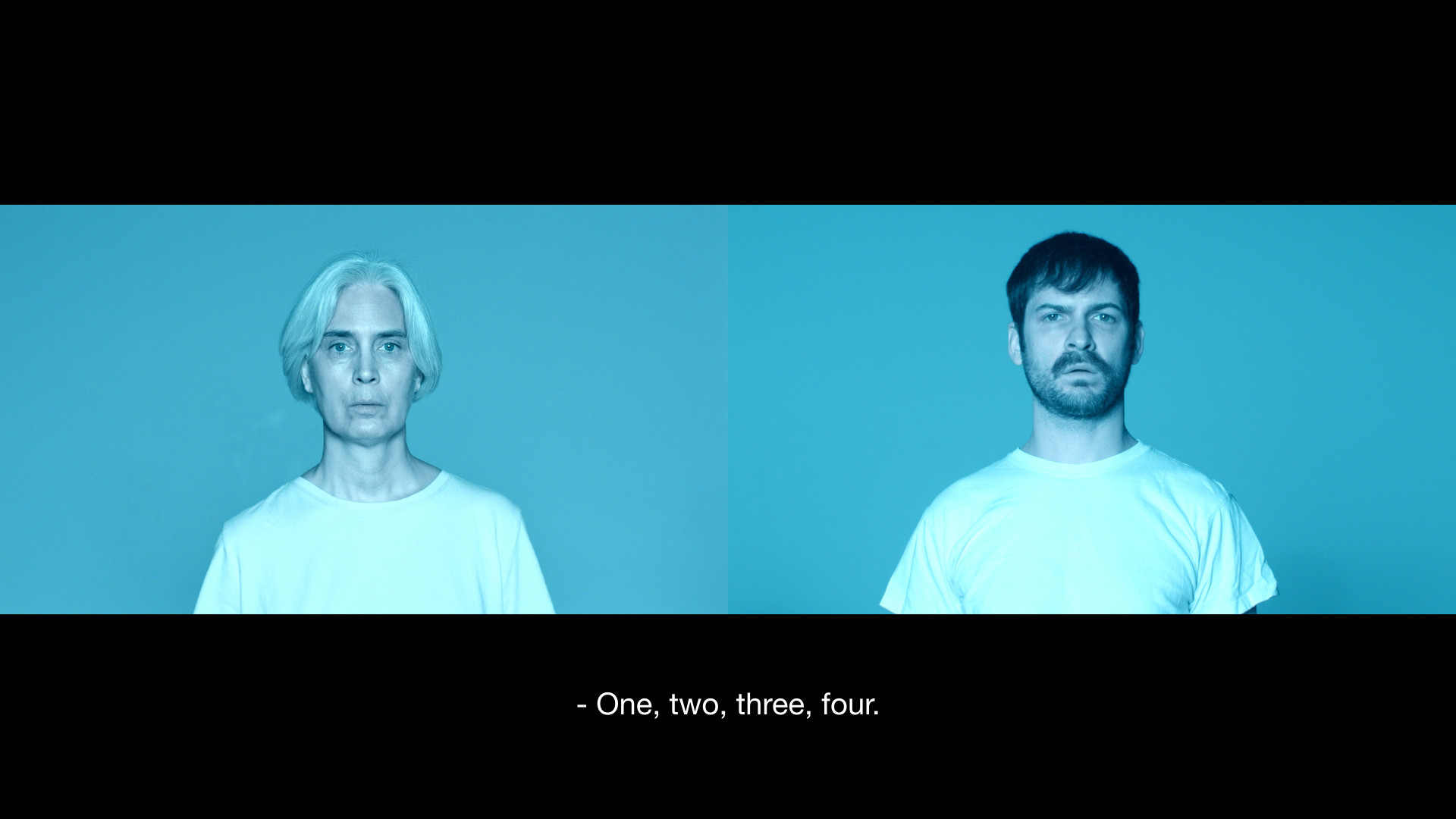
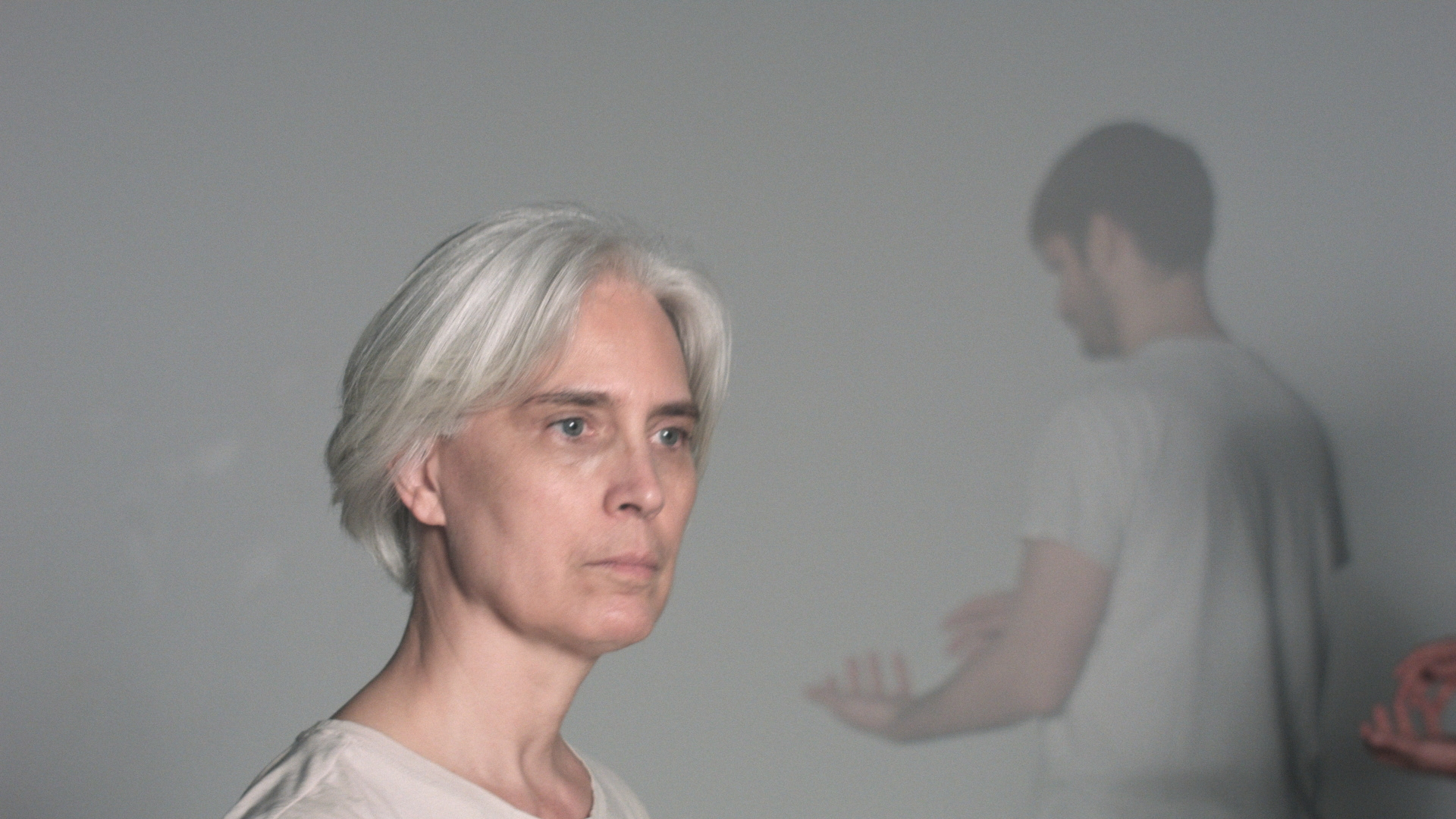
NOSTALGIA AND LOSS (2025)
Short Film | Symbolic Fiction | Running Time: 12 min
By Yilin Evan Zhu
By Yilin Evan Zhu
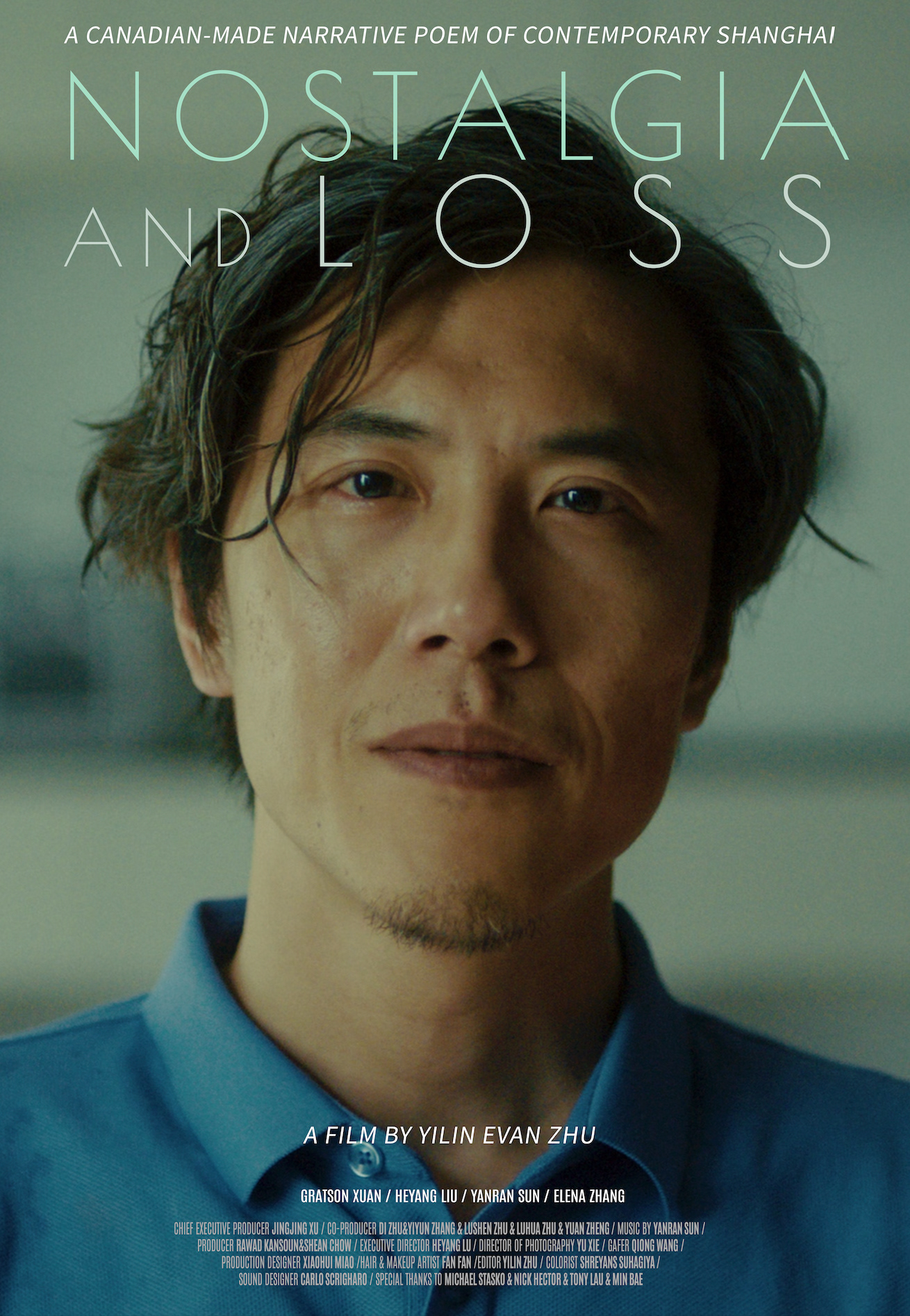
Nostalgia and Loss is a narrative short film exploring how love can function as a vessel for political meaning in contemporary Chinese cinema. The story follows a married couple—once close, now emotionally estranged—on the verge of separation. As the husband returns from overseas, the wife prepares to leave. Their shared silence, confined domestic space, and carefully controlled gestures construct a portrait of loss that is at once intimate and systemic.
The film was developed as part of Yilin Evan Zhu’s MFA thesis, which investigates how Chinese directors encode political commentary through personal relationships and symbolic mise-en-scène. Drawing from the stylistic strategies of Lou Ye, Jia Zhangke, and Chen Kaige, Nostalgia and Loss employs color, spatial framing, and emotional blocking to translate the unspoken tension of private life into a reflection of collective constraint.
While no overt political discourse is spoken, the film treats emotional absence as a form of resistance—where departure becomes a quiet escape, and disconnection reflects a deeper crisis of belonging. It asks: when language fails, can emotion still carry meaning?
The work forms part of Zhu’s broader investigation into how narrative fiction—particularly stories of love, separation, and silence—can serve as a symbolic language for navigating censorship, memory, and trauma.
The story is not about confrontation, but about what love cannot say.
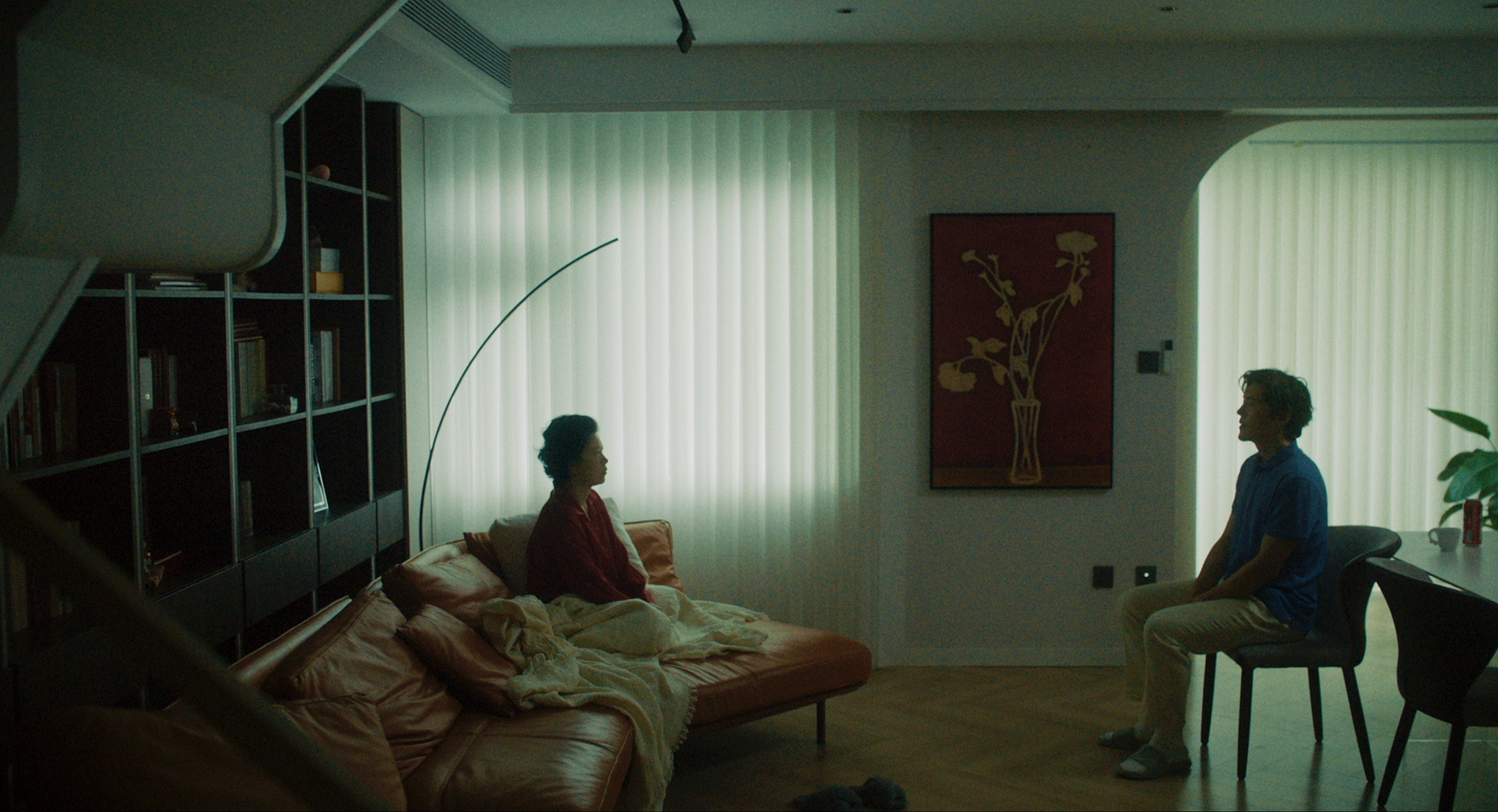

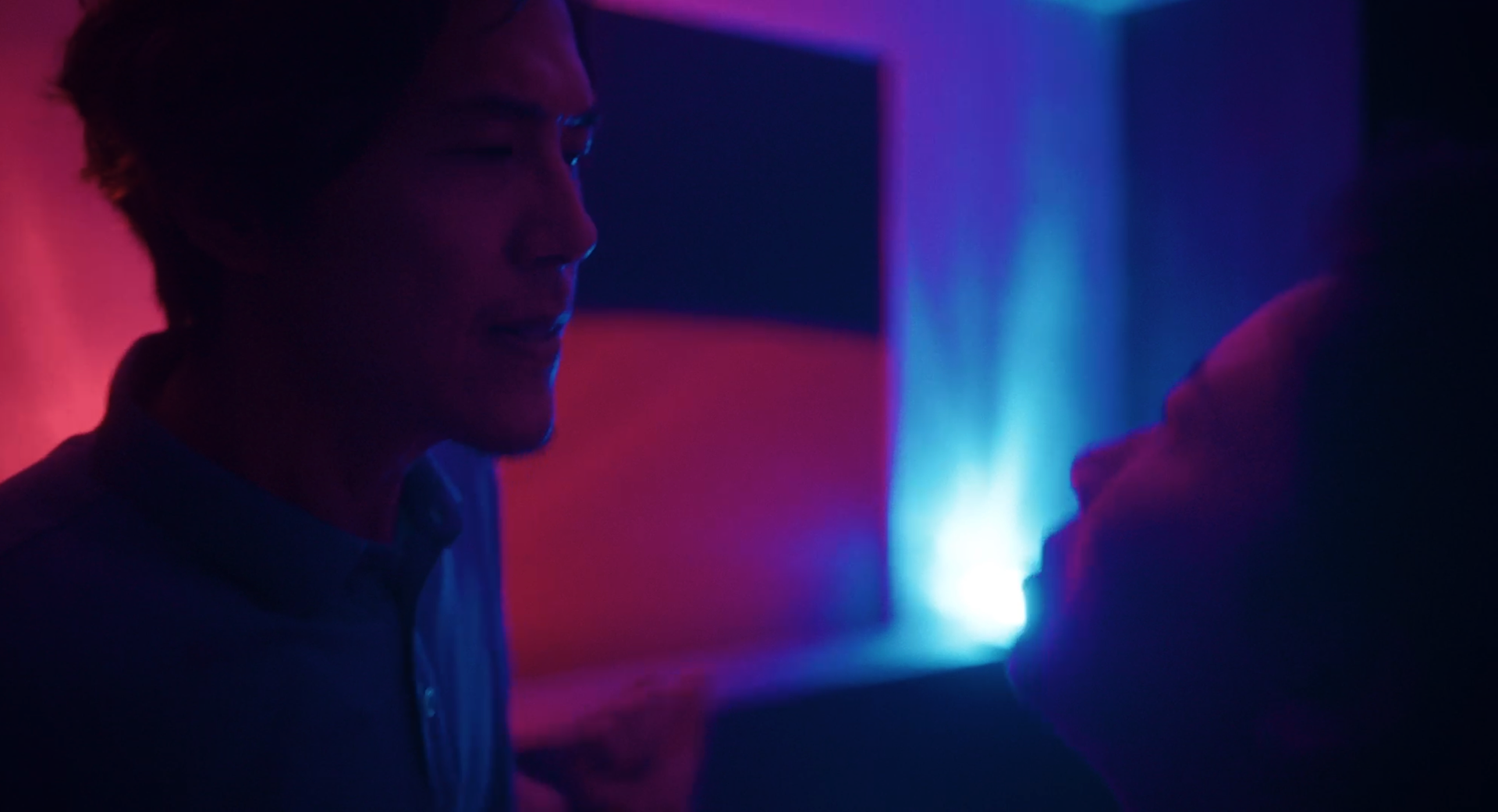
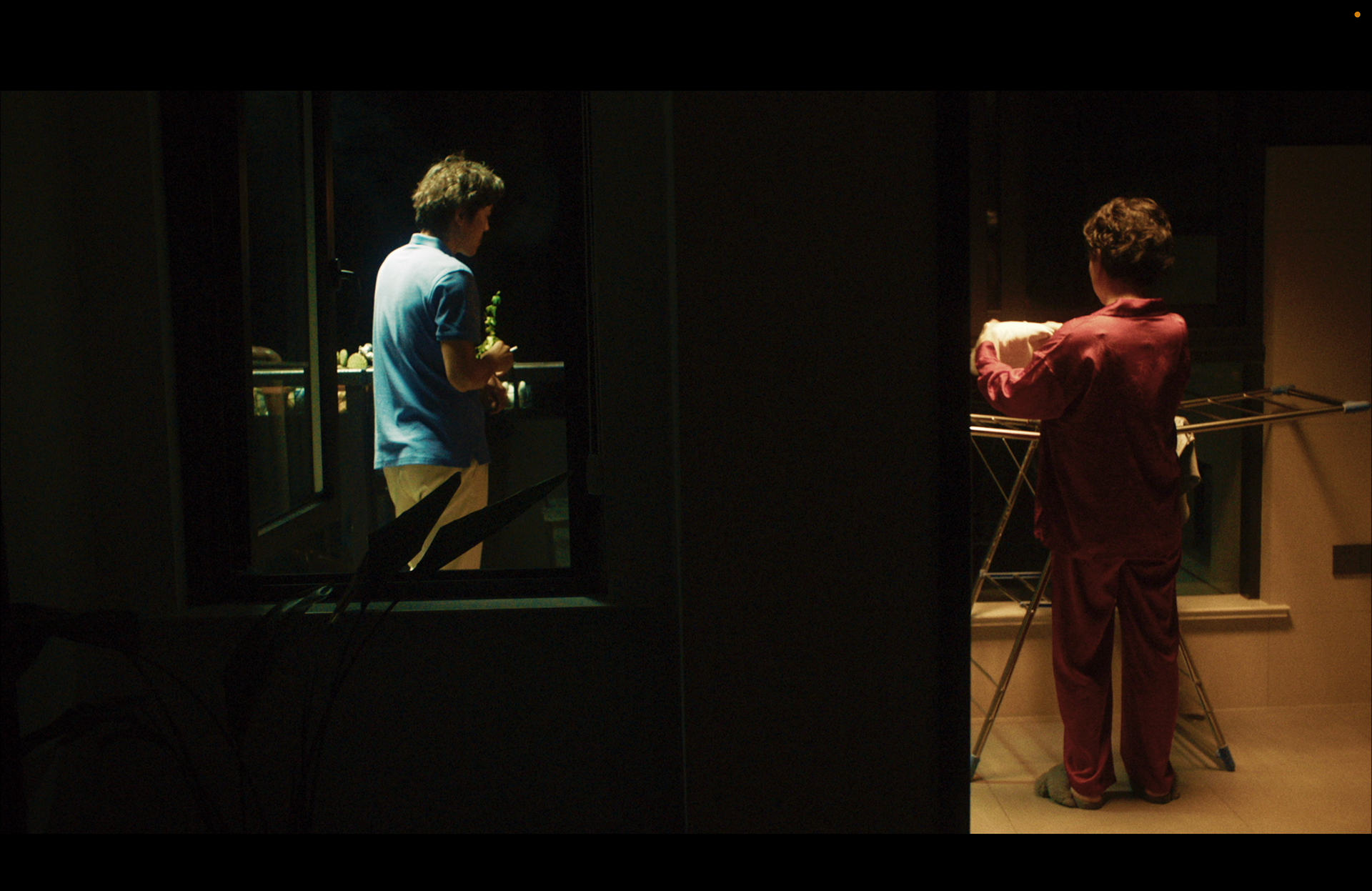
ANLIAN (2024)
Experimental Short | Language-Driven Narrative Test | Running Time: 2 min
By Yilin Evan Zhu
By Yilin Evan Zhu
Anlian ("Secret Love") is a 2-minute experimental short created during Zhu’s MFA studies as a narrative experiment in form, absence, and language. Shot without a script and using only one performer, the film explores how spoken language can overwrite, distort, or reframe the image when narrative is no longer visually grounded.
In the film, a man sits alone in a dimly lit space. What unfolds is not action, but verbal association: he speaks softly, hesitantly, as if remembering something that may never have happened. His words attempt to reconstruct an invisible story—one of unspoken desire, missed connection, and internal projection.
By detaching language from plot and gesture, Anlian tests the limits of storytelling through voice alone. The result is a fragment, both sincere and disoriented, that probes how narrative might emerge not from images—but from their failure.
This microfilm reflects Zhu’s ongoing interest in the instability of perception, and the possibility of narrative as a subjective reconstruction rather than a fixed structure.
A story not shown, but summoned—through words that may be lying.
